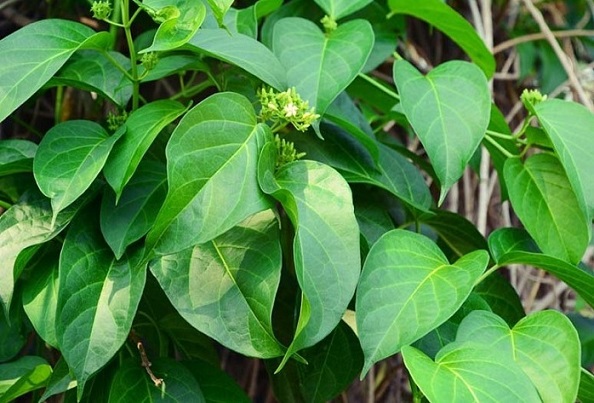Thailand Medical Researchers Discover Potent Anti-Aging Effects from Chiang Da Leaf Extract
Nikhil Prasad Fact checked by:Thailand Medical News Team Oct 14, 2025 3 months, 4 weeks, 2 days, 23 hours, 13 minutes ago
Thailand Medical: Traditional Thai Herb Shows Modern Promise
A group of Thailand medical researchers from the National Nanotechnology Center (NANOTEC) under the National Science and Technology Development Agency (NSTDA) in Pathum Thani, and the Biomedical Engineering Institute and Biomedical Engineering and Innovation Research Centre at Chiang Mai University, have uncovered new anti-aging potential in Gymnema inodorum—a vegetable better known locally as Pak Chaing Da. Their study found that extracts from this plant could protect skin cells from damage caused by oxidative stress, the main culprit behind wrinkles, sagging, and other signs of aging. This
Thailand Medical News report highlights how the humble northern Thai herb might soon become a major player in skincare science.
 Thailand Medical Researchers Discover Potent Anti-Aging Effects from Chiang Da Leaf Extract
How Oxidative Stress Damages the Skin
Thailand Medical Researchers Discover Potent Anti-Aging Effects from Chiang Da Leaf Extract
How Oxidative Stress Damages the Skin
Every day, our skin is exposed to harmful factors like sunlight, air pollution, and toxins. These triggers cause the overproduction of reactive oxygen species (ROS), unstable molecules that attack healthy skin cells and break down collagen. When left unchecked, ROS can speed up aging, leading to fine lines, loss of firmness, and even inflammation-based disorders. Fibroblasts—cells responsible for maintaining the skin’s structure—are especially vulnerable, making it critical to find natural solutions that can help neutralize this damage.
Gymnema Inodorum’s Powerful Protective Role
Researchers tested six types of Gymnema inodorum extracts prepared using different ethanol concentrations (ranging from 0% to 95%) and compared them with a commercial extract from Gymnema sylvestre. The team discovered that water-based (GIE0) and ethanol-based (GIE80 and GIE95) extracts had the strongest antioxidant properties. These extracts significantly reduced free radicals in human skin fibroblast cells exposed to hydrogen peroxide—a chemical that mimics oxidative stress. They restored cell balance, reduced inflammation, and helped prevent cell death.
Further tests showed that these extracts contained rich natural compounds such as flavonoids, phenolics, and triterpenoids, all known for their ability to scavenge harmful free radicals. Notably, the GIE80 and GIE95 extracts demonstrated outstanding anti-glycation properties, meaning they could help stop sugar-related skin aging that leads to stiffness and dullness.
Key Cellular Mechanisms Identified
The study also revealed that Gymnema inodorum extracts work by modulating specific cell signaling pathways linked to inflammation and cell survival. The extracts reduced the overactivation of MAPK, AP-1, and NF-κB—pathways that usually amplify inflammation and cell injury. By calming these responses, the extracts helped fibroblast cells recover from oxidative attacks and maintain their collagen-producing function. Essentially, the herb not only prevents cell damage but also promotes health
ier and more resilient skin tissue.
A Natural Candidate for Future AntiAging Products
The research suggests that Gymnema inodorum could become a cornerstone ingredient in future anti-aging and skin repair formulations. Its dual action—antioxidant and anti-inflammatory—gives it an edge over many existing plant-based skincare ingredients. Moreover, being locally grown and long used in Thai cuisine, the plant offers a sustainable and safe source for skincare innovation.
Conclusion
The findings from Thailand’s research community mark a significant step forward in natural dermatological science. By proving that Gymnema inodorum can protect human skin fibroblasts from oxidative and inflammatory stress, this study opens new pathways for developing Thai herbal-based anti-aging products that are both effective and eco-friendly. If further clinical studies confirm its benefits, this native plant could soon stand beside global skincare powerhouses.
The study findings were published in the peer-reviewed journal: Antioxidants
https://www.mdpi.com/2076-3921/14/9/1043
For the latest on Herbs and Phytochemicals, keep on logging to Thailand
Medical News.
Read Also:
https://www.thailandmedical.news/articles/herbs-and-phytochemicals
https://www.thailandmedical.news/articles/tcm-news
https://www.thailandmedical.news/articles/supplements
